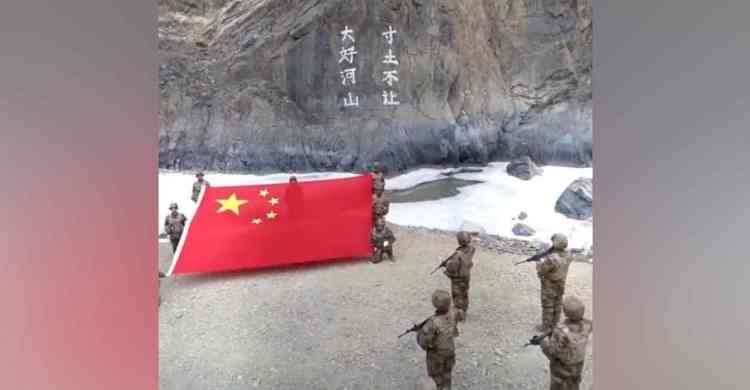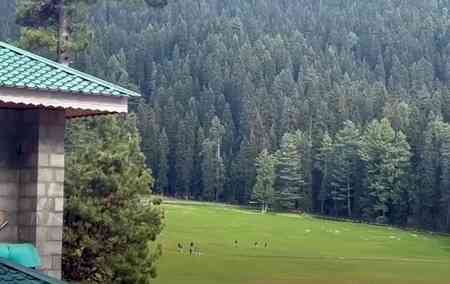China lost 42 soldiers in Galwan Valley clash, not 4: Australian newspaper
Chinese People's Liberation Army lost 42 soldiers, not four during the Galwan Valley clashes with the Indian troops in Eastern Ladakh, claims The Klaxon, an Australian newspaper, on Thursday. The clashes took place on June 15, 2020.

New Delhi, Feb 3 (IANS) Chinese People's Liberation Army lost 42 soldiers, not four during the Galwan Valley clashes with the Indian troops in Eastern Ladakh, claims The Klaxon, an Australian newspaper, on Thursday. The clashes took place on June 15, 2020.
The Indian security establishments remained silent over the claims made by the Australian newspaper report.
The report filed by Editor Anthony Klan makes such claims citing a report of a group of social media researchers.
The newspaper states that evidence provided by a group of social media researchers, which The Klaxon has independently built on, appears to support claims that China's casualties extended well beyond the four soldiers named by Beijing.
"It also shows extreme lengths Beijing has gone to in order to silence discussion about the battle - in particular, discussion about the true number of Chinese casualties."
The report citing the researchers states that the deadly June 15 battle was sparked over a temporary bridge, which Indian soldiers had erected across a stream of the Galwan River three weeks earlier, on May 22.
The report stated that the Indian and Chinese military officials had agreed to a "buffer zone" along the border in an attempt to "de-escalate the crisis" amid rising tensions.
It states that despite creation of a buffer zone, China had been building "illegal infrastructure" inside the zone, including erecting tents and creating dugouts and had moved heavy machinery into the area.
"According to a Weibo user alias name Qiang who claims to have served in the area, the PLA was creating infrastructure in this buffer zone, violating the mutual agreement and had been trying to expand its patrolling limits within the buffer zone since April 2020," the researchers state in the newspaper.
The report states: "On June 6, 80 PLA soldiers came to dismantle the bridge and nearly 100 troops came to defend it."
The paper citing the report states that during the June 6 standoff, officers from both sides "agreed to withdraw all personnel who crossed the buffer zone line" and to "dismantle all the facilities that crossed the line".
However the report says China failed to adhere to the agreement.
"PLA did not adhere to its promise and instead of dismantling its own infrastructure as agreed upon, secretly dismantled the river crossing bridge constructed by the Indian army," it says.
Three days later, on June 15, Colonel Santosh and his troops returned.
The Chinese forces were led by Colonel Qi Fabao.
"On 15th June 2020, Col. Santosh Babu along with his troops went to the disputed area in the Galwan Valley at night in an attempt to remove the Chinese encroachment where Col. Qi Fabao was present along with nearly 150 soldiers," the report states.
It says that Fabao ordered his troops to form a battle formation, instead of discussing the issue on the lines of mutual consent made at the June 6 meeting.
The report says that "the moment Col. Fabao attacked he was immediately besieged by the Indian army troops".
"To rescue him, PLA battalion commander Chen Hongjun and soldier Chen Xiangrong entered the encirclement of Indian army and started (a) physical scuffle with Indian troops using steel pipes, sticks and stones to provide cover for (their) commander to escape".
India's Colonel Santosh Babu was killed in the fighting.
It further cited "several Weibo users" states: "at least 38 PLA troops along with Wang were washed away and drowned that night of which only Wang was declared among the four officially dead soldiers".
"After the incident, the bodies of the soldiers were first taken to Shiquanhe Martyr Cemetery, followed by local ceremonies at the local towns of the killed soldiers," the report states.
India had maintained that 20 soldiers were killed during the incident.


 IANS
IANS 










